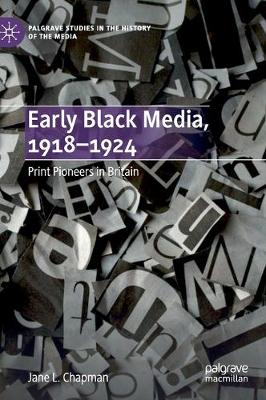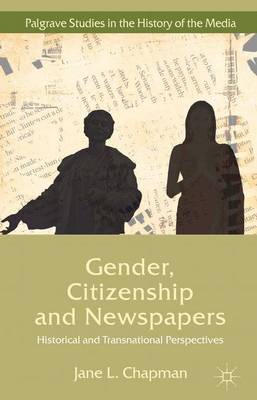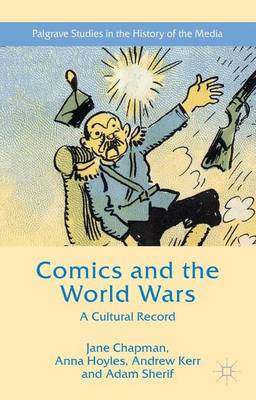Palgrave Studies in the History of the Media
3 total works
This book represents the first systematic attempt to analyse media and public communications published in Britain by people of African and Afro-Caribbean origin during the aftermaths of war, presenting an in-depth study of print publications for the period 1919-1924. This was a period of post-conflict readjustment that experienced a transnational surge in special interest newspapers and periodicals, including visual discourse. This study provides evidence that the aftermath of war needs to be given more attention as a distinctly defined period of post-conflict adjustment in which individual voices should be highlighted. As such it forms part of a continuing imperative to re-discover and recuperate black history, adding to the body of research on the aftermaths of The First World War, black studies, and the origins of diaspora.
Jane L. Chapman analyses how the newspapers of black communities act as a record of conflict memory, and specifically how physical and political oppression was understood by members of the African Caribbean community. Pioneering black activist journalism demonstrates opinions on either empowerment or disempowerment, visibility, self-esteem, and economic struggles for survival.
Jane L. Chapman analyses how the newspapers of black communities act as a record of conflict memory, and specifically how physical and political oppression was understood by members of the African Caribbean community. Pioneering black activist journalism demonstrates opinions on either empowerment or disempowerment, visibility, self-esteem, and economic struggles for survival.
The gendered nature of the relationship between the press and emergence of cultural citizenship from the 1860s to the 1930s is explored through original data and insightful comparisons between India, Britain and France in this integrated approach to women's representation in newspapers, their role as news sources and their professional activity.
Comics and the World Wars
by Jane L. Chapman, Adam Sherif, Anna Hoyles, and Andrew Kerr
Published 9 July 2015
This transnational, interdisciplinary study argues for the use of comics as a primary source. In recuperating currently unknown or neglected strips the authors demonstrate that these examples, produced during the World Wars, act as an important cultural record, providing, amongst other information, a barometer for contemporary popular thinking.


